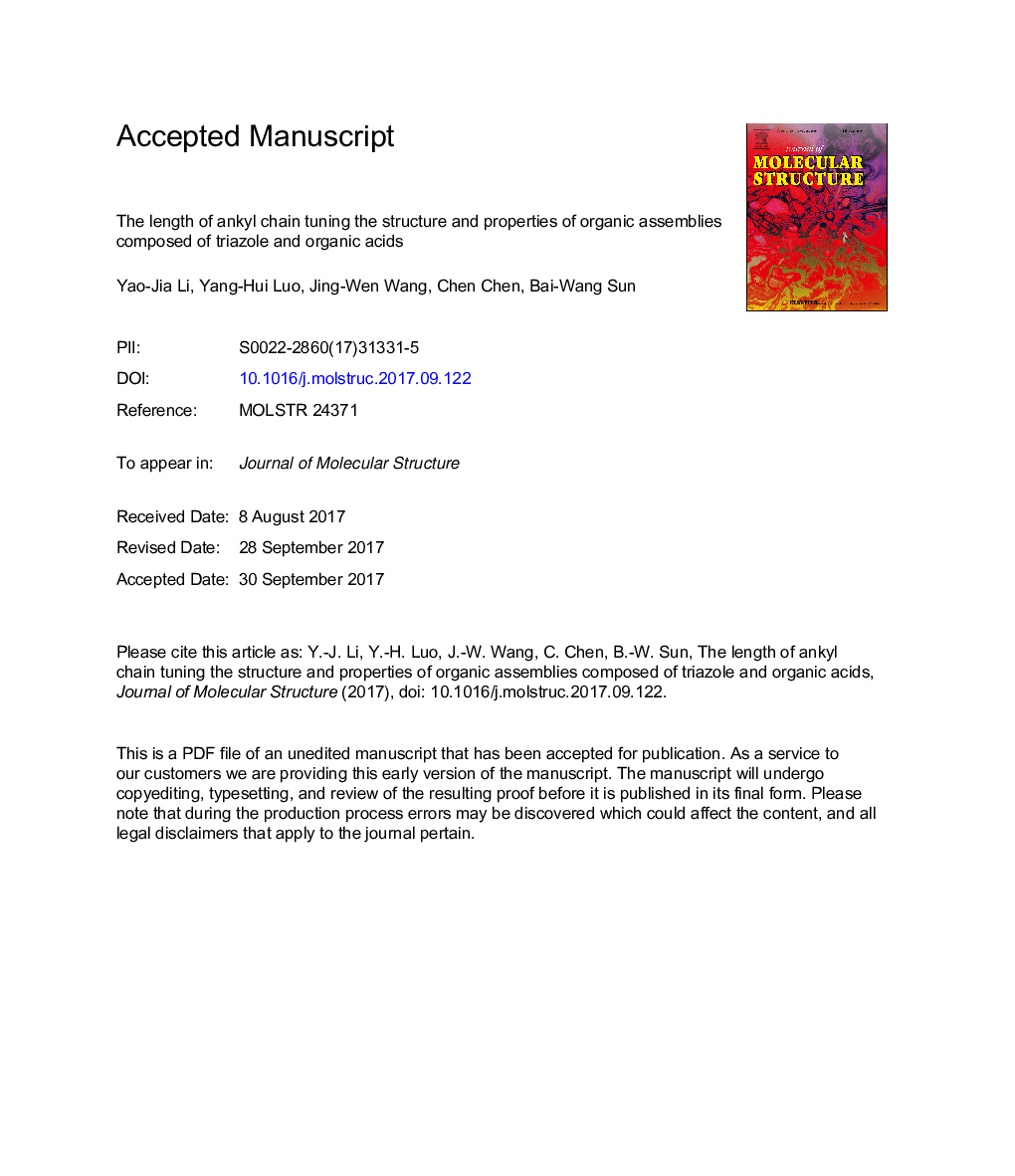| Article ID | Journal | Published Year | Pages | File Type |
|---|---|---|---|---|
| 7809016 | Journal of Molecular Structure | 2018 | 25 Pages |
Abstract
Three salts: 3-amino-1,2,4-triazolinium (1+) hydrogen oxalate (1), 3-amino-1,2, 4-triazolinium (1+) hydrogen malonate (2), 3-amino-1,2,4-triazolinium (1+) hydrogen succinate (3) and one co-crystal: 3-amino-1,2,4-triazole-adipic acid (4) have been prepared and characterized by differential scanning calorimetry (DSC), thermogravimetric analyses (TGA), IR, Raman, and single-crystal X-ray diffraction. Wherein, supramolecular motif in salts 1, 3 and co-crystal 4 were dominant by triazole-acid and amino-acid heterosynthon, while salt 2 dominant by amino-triazole homosynthon in addition to triazole-acid heterosynthon, which attribute to the intermolecular hydrogen interactions within hydrogen malonate anion. These results have a close relationship with the ÎpKa between 3-ATZ and alkyl acids, we found that the ÎpKa is grate than 6.9, the formation of salt will be expected, while the formation of co-crystal usually with the ÎpKa less than 6.75. It is interesting that salts 2 and 3 show the phenomenon of proton transfer after melt, which lead to the stepwise sublimation of the two components. The differences between salts and co-crystal were also revealed by the solid-state vibrational spectroscopy (IR and Raman), Hirshfeld surface analysis and UV spectra.
Related Topics
Physical Sciences and Engineering
Chemistry
Organic Chemistry
Authors
Yao-Jia Li, Yang-Hui Luo, Jing-Wen Wang, Chen Chen, Bai-Wang Sun,
